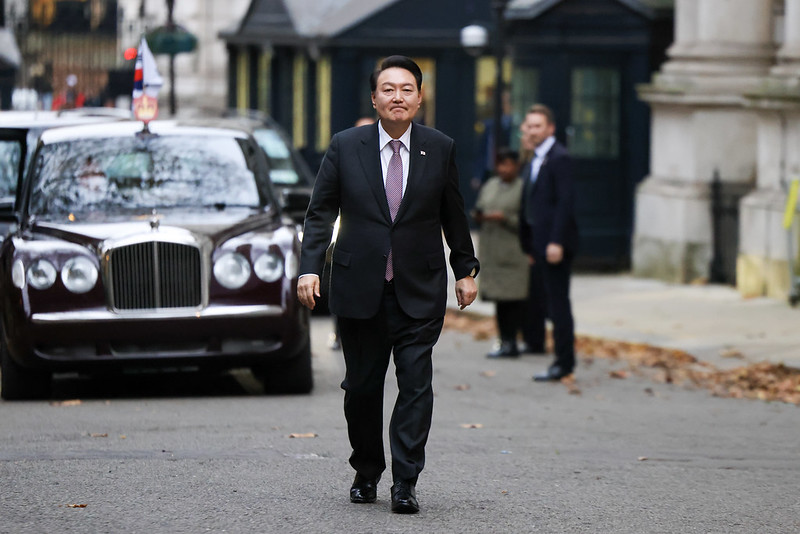By Kim Tong-Hyung, 4 December 2024

President Yoon Suk Yeol of South Korea (photo credit: Number 10 via flickr)
The president of South Korea early Wednesday lifted the martial law he imposed on the country hours earlier, bending to political pressure after a tense night in which troops surrounded parliament and lawmakers voted to reject military rule.
President Yoon Suk Yeol, who appeared likely to be impeached over his actions, imposed martial law late Tuesday out of frustration with the opposition, vowing to eliminate “anti-state” forces as he struggles against opponents who control parliament and that he accuses of sympathizing with communist North Korea. [ . . . ] Under South Korea’s constitution, the president can declare martial law during “wartime, war-like situations or other comparable national emergency states” that require the use of military force to maintain peace and order. It was questionable whether South Korea is currently in such a state.
When martial law is declared, “special measures” can be employed to restrict freedom of press, freedom of assembly and other rights, as well as the power of courts.
The constitution also states that the president must oblige when the National Assembly demands the lifting of martial law with a majority vote.
Read the full article here:
ABC News
